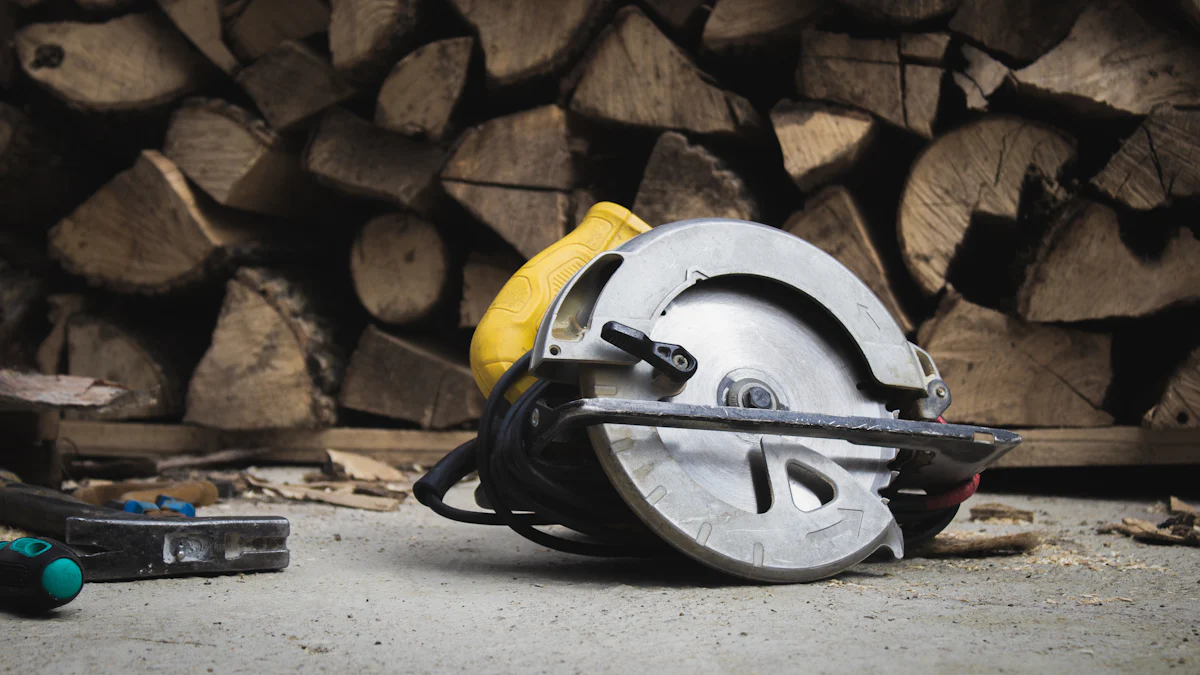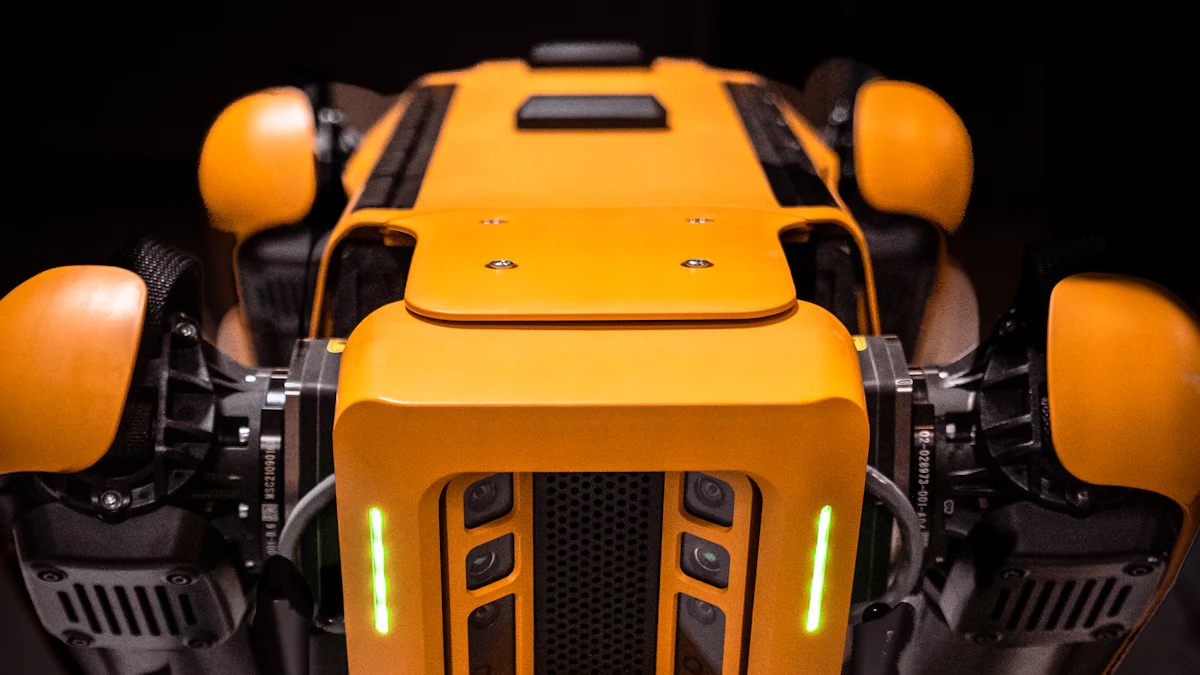AC POWER TOOLS have revolutionized the way you tackle various tasks, offering both corded and cordless options. The choice between these two can significantly impact your efficiency and effectiveness. Cordless tools, like the 13mm Impact Drill 710W, have gained popularity, capturing 68% of all power tool sales in the US by 2023. This shift is driven by advancements in battery technology, making cordless tools a preferred choice for many. However, when you Choose Corded Tools, you often benefit from consistent power and durability. Brands like Evolution Power Tools continue to innovate, ensuring you have the best options for your needs.
Understanding AC Power Tools

Corded Power Tools
Benefits of Corded Tools
When you choose corded tools, you tap into a world of consistent power and reliability. Corded power tools draw energy directly from an electrical outlet, ensuring a steady supply of power. This means you can tackle heavy-duty tasks without worrying about battery life. The benefits of corded tools include their ability to deliver high torque and power output, making them ideal for demanding projects like drilling through thick materials or cutting dense wood. You will find that corded tools provide consistent performance, even during prolonged use. They are often more durable than their cordless counterparts because they don’t rely on batteries that wear out over time. Additionally, corded tools are ideal for indoor or workshop settings where mobility isn’t a primary concern.
Downsides of Corded Tools
Despite their advantages, corded power tools disadvantages exist. The need to remain near a power outlet can limit your mobility, making them less suitable for projects in remote locations. The cord itself can become a tripping hazard or get tangled during use. Furthermore, while corded power tools typically offer a lower initial cost compared to cordless options, they may not be as convenient for quick, on-the-go tasks. If you need flexibility and freedom of movement, you might find these tools somewhat restrictive.
Cordless Power Tools
Benefits of Cordless Tools
Cordless power tools advantages lie in their mobility and convenience. Without the tether of a cord, you can work in various locations, including outdoor sites or areas without easy access to electricity. Cordless tools are generally lighter and more compact, making them easier to handle in tight spaces or when working at heights. The advancements in batteries have significantly improved their performance, with bigger batteries providing longer run times. This flexibility allows you to complete tasks without interruption, enhancing your productivity.
Downsides of Cordless Tools
However, cordless tools come with their own set of challenges. The reliance on batteries means you must manage charging times and potential performance drops as the battery depletes. Cells equals less current, which can affect the tool’s power output during extended use. Additionally, the initial cost of cordless tools can be higher due to the need for batteries and chargers. Over time, you may also incur costs for battery cells replacements, which can add up. While cordless tools offer great flexibility, they may not match the raw power and durability of corded tools for heavy-duty applications.
Corded vs Cordless Tools: Cost Considerations
When deciding between corded vs cordless tools, understanding the cost implications is crucial. Both options have unique financial aspects that can influence your choice.
Initial Purchase Costs
Corded vs Cordless Pricing
Corded tools generally present a more affordable initial investment. You don’t need to purchase extra batteries or chargers, which keeps costs down. This makes them an attractive option if you’re budget-conscious. On the other hand, cordless tools tend to have a higher upfront cost. The inclusion of batteries and chargers adds to the price. However, this investment provides the convenience of mobility and flexibility, which many users find valuable.
Long-term Maintenance and Battery Replacement
Cost of Battery Replacements
With cordless power tools, you must consider the ongoing expense of battery replacements. Over time, these costs can add up, especially if you rely heavily on your tools. Cordless tools provide great flexibility, but managing battery life is essential. Stacked Lithium Pouch Cells have improved performance, yet they still require periodic replacement.
Maintenance of Corded Tools
Corded tools offer a different financial perspective. They don’t require battery replacements, which can lead to savings over time. Maintenance involves ensuring the cord remains intact and functional. Corded power tools often last longer due to their robust design, making them a durable choice for your DIY Workshop.
Future Trends in Power Tools

The landscape of power tools is constantly evolving, driven by technological advancements and user demands. As you explore the future trends in this industry, you’ll notice significant innovations in both cordless and corded power tools.
Innovations in Cordless Technology
Cordless tools have become a staple in many toolkits, offering unparalleled flexibility and convenience. The advancements in battery technology have played a crucial role in enhancing the performance of cordless power tools.
Improved Battery Life
Recent developments in lithium-ion batteries have revolutionized cordless power tools. These batteries now offer longer run times, allowing you to work uninterrupted for extended periods. The improved battery life means you can tackle larger projects without the constant need to recharge. Fast charging capabilities further enhance productivity, ensuring that your tools are ready when you are. This shift towards more efficient batteries has made cordless tools a reliable choice for both professionals and DIY enthusiasts.
Enhanced Power Output
Cordless power tools are no longer limited by their power output. Thanks to advancements in battery cells with higher power density, these tools now rival their corded counterparts in terms of performance. You can expect cordless tools to deliver impressive torque and speed, making them suitable for a wide range of applications. The integration of brushless motors has also contributed to enhanced power output, providing you with the efficiency needed for demanding tasks.
Developments in Corded Tools
While cordless tools continue to gain popularity, corded power tools remain a vital part of the industry. They offer consistent power and durability, making them indispensable for certain applications.
Ergonomic Designs
Manufacturers are focusing on ergonomic designs to improve user comfort and reduce fatigue. Corded tools now feature lightweight materials and balanced structures, allowing you to work for longer periods without strain. These ergonomic enhancements ensure that you can maintain precision and control, even during extended use.
Increased Efficiency
Corded power tools are becoming more efficient, thanks to innovations in motor technology and design. You can expect these tools to deliver consistent performance with minimal energy consumption. This increased efficiency not only benefits the environment but also reduces operational costs. As a result, corded tools remain a cost-effective option for those who prioritize power and reliability.
In conclusion, the future of power tools is bright, with continuous advancements in both cordless and corded technologies. Whether you prefer the mobility of cordless tools or the consistent power of corded options, the industry is evolving to meet your needs.
In summary, both corded and cordless power tools offer distinct advantages. Corded tools provide consistent power output, making them ideal for heavy-duty tasks and extended use. On the other hand, cordless tools offer unmatched mobility and convenience, especially in remote locations. When deciding between the two, consider factors like your work environment, project requirements, and personal preferences. Evaluate the importance of mobility versus power. Remember, batteries and cells play a crucial role in cordless tools, affecting their performance and longevity. Whether you choose corded or cordless, ensure it aligns with your DIY needs and enhances your productivity.
Post time: Oct-14-2024
